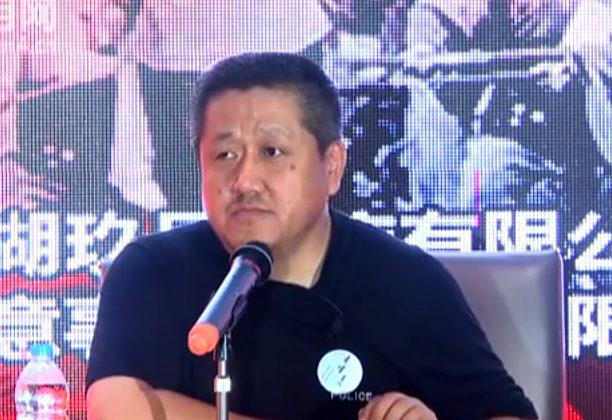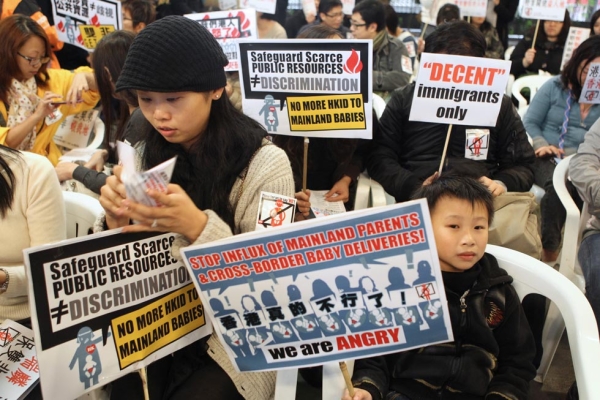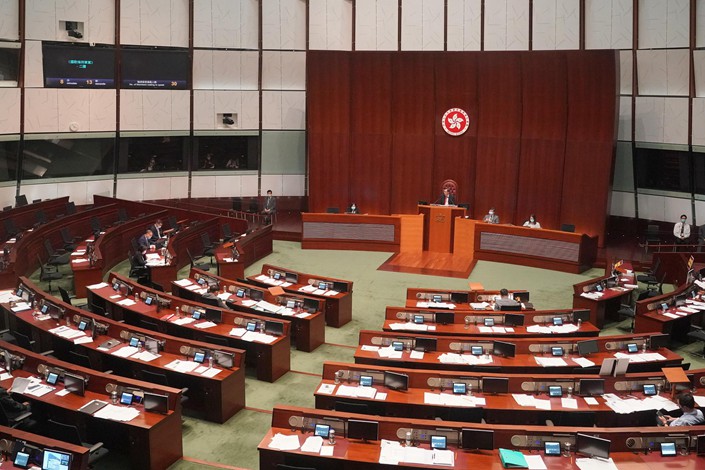
In the past two decades, there have been many issues that escalated the HK-China conflict. This document contains some examples of these things, excluding the most recent protests (2019-2020) and the security law, which will be covered in a later section.

Kong Qingdong, a professor of Chinese studies at Peking University, made controversial headlines when he came on national television to call Hong Kongers "dogs" and "bastards" that are less than human. He was discussing the issue of national language in Hong Kong, of whether it should be Mandarin or Cantonese.
He cursed the people of Hong Kong in an angry rant on television, critcizing the protests. This just made the Hong Kong people even more angry, and prompted a protest in Hong Kong's Central Government's Liaison Office.
The context of this incident was during increasing tensions, when Hong Kongers protested against the lax right of abode laws at the time. These laws would extend citizenship to citizens that were born from mainland Chinese parents.
Psychologically, people were developing a sense of self and identity apart from mainland China. From surveys and other studies, it was found that the percentage of people classifying themselves as "Chinese" went down dramatically during the 2012-2013 era.
Parallel business is the phenomenon of traders from the mainland coming into Hong Kong to buy things to resell at a higher price back home.
For example, in a neighborhood called Sheung Shui that's near the border with mainland China, parallel trading has made the rent costs high, and has caused shortages of essential household items like baby formula.
In Sheung Shui, parallel trading has replaced local shops with large pharmacies and other corporations. This slowly erodes the tradition and unique culture of Hong Kong, which is partly known for its mom and pop stores and bustling local markets.

From 2000-2012, women from the mainland have been coming to Hong Kong to have "anchor babies", children that give the parents right of abode, and social welfare. They also gain the civil rights that Hong Kong offers, which are much better China's rights. For instance, bookstores are not heavily censored, political thought isn't as suppressed, and the Falun Gong are less oppressed.
The reason so many came in is beacuse in 1997, the Provisional Legislative Council tried to restrict the right of abode laws but the Court of Final Appeal ruled in favor of new Chinese immigrants, which potentially let thousands of mainlanders in.
CY Leung, the Chief Executive at the time, put an end to this with a 'zero' quota on anchor babies, but already there were over 150k babies born with both parents from the mainland during the period from 2001 to 2012.

In November 2015, pro-democracy LegCo member Claudia Mo tried to pass some anti-mainland policies that would defend Hong Kong's local history from being manipulated by China.
The policy's supporters warned that if China were to take control of Hong Kong's history and culture, it could result in political corruption, fake products, and the abuse of power.